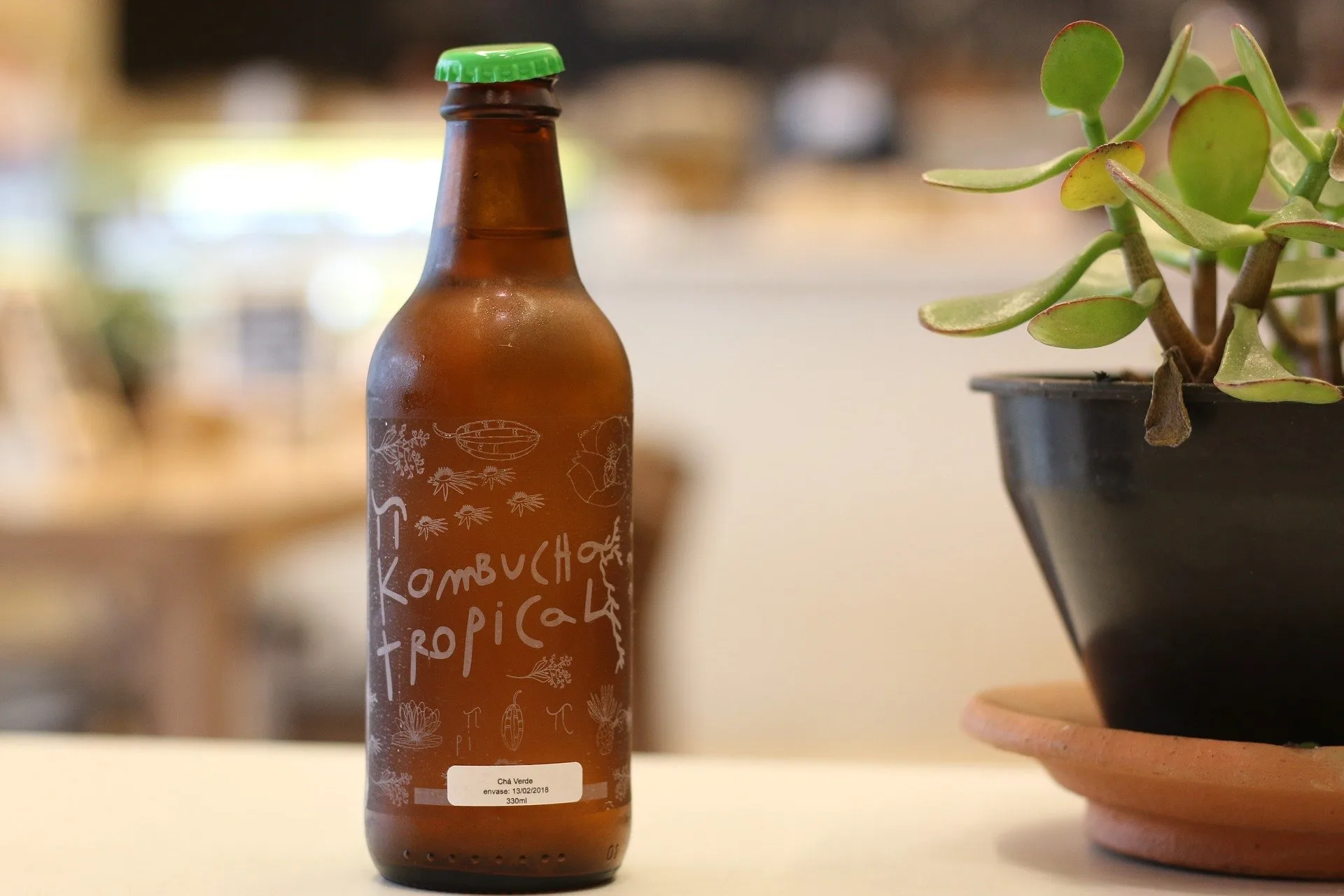If your love of fermented foods knows no bounds, then it could be time for you to pick up and enjoy a cup of fermented tea, known as kombucha.
Kombucha is a bubble, sour-tasting fermented tea dating back to ancient China. While commonly made from black tea, kombucha can also be fermented from green tea. As part of inducing the fermentation process, bacteria, yeast, and sugar (be it cane sugar, honey, or even sugar from fruits) are added to black or green tea before allowing it to ferment for a week or so. During fermentation, the bacteria and yeast form a living colony known as SCOBY (symbiotic colony of bacteria and yeast) which is often later used to ferment new kombucha.
Benefits of kombucha
As a result of the fermentation process, kombucha becomes carbonated, and it also contains B vitamins, enzymes, and numerous probiotics – which is also a plus. While our gut bacteria are responsible for a number of integral bodily processes, consuming probiotics can serve to strengthen said processes, and by doing so, we’re sure to enjoy a number of benefits for our overall health.
1. Supports gut health
In a perfect world, our guts consist of a healthy ratio of good and bad bacteria; however, this ratio can typically become unequal, thus affecting general health. The consumption of probiotics, such as the ones found in kombucha, can help to restore the balance, which can then ensure overall health.
2. Eases digestion
With regards to its rich probiotic content, by supporting gut health; kombucha can help to ease digestion.
Aside from making food more digestible, it can help with other forms of gastrointestinal health by alleviating symptoms of irritable bowel system, constipation, and diarrhea.
3. Boosts your immunity
As probiotics help the body better absorbs nutrients, the improved absorption of the right nutrients can boost the immune system and strengthen the fight against infections and diseases.
Perhaps because it’s often made from green tea, which possesses its own anti-oxidative properties, kombucha can help to detoxify and provide anti-oxidative protection.
4. Protects cardiovascular health
Heart disease is the leading cause of death worldwide, but drinking this fermented drink could help to lower those statistics.
High levels of cholesterol are a common precursor to heart disease, yet animal studies done in rats revealed how kombucha improved levels of cholesterol in little under a month.
5. May help manage type 2 diabetes
Consuming kombucha with a low sugar content may help to alleviate diabetic symptoms.
An animal study revealed how kombucha not only helped to reduce blood sugar levels but also helped improve the functionality of both the liver and kidneys – which is often a point of concern amongst diabetics.
6. May help protect against cancer
Antioxidants found in kombucha may be the missing ingredient in the fight against cancer. According to a test-tube study published in the journal Biomedicine & Preventive Nutrition, kombucha helped to hinder the growth and spread of cancerous cells.
7. Helps maintain a healthy liver
The liver is one of the body’s main filters thus it’s important to maintain its health.
While studies have only been done on rats as opposed to humans, these studies have revealed how kombucha reduces the amount of toxins located in the liver. This can help to ensure overall health in case the liver becomes overburdened with filtering out toxins from the body.
Creating kombucha at home
While kombucha is seemingly easy to create, it’s important to be careful if you wish to make it at home.
Prolonged fermentation can result in contamination which can cause health problems, which is why it’s best to purchase it in a health store. In doing so, be sure to inspect its sugar content. Once you have your kombucha (store-bought or homemade), be sure to store it in a clear glass bottle and never shake the bottle, as this may result in the container exploding.
You can put it in the fridge if you wish to extend its shelf life.
Whether you enjoy kombucha by itself as an alternative to sweetened cool drinks or add it to smoothies, drink up and drink healthy.



